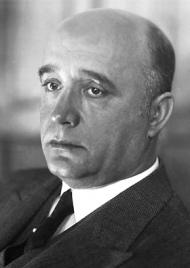Euridice (also Erudice or Eurydice) is an opera by Jacopo Peri, with additional music by Giulio Caccini. (Caccini wrote his own "Euridice" even as he supplied music to Peri's opera, published this version before Peri's was performed, in 1600, and got it staged two years later.) The libretto by Ottavio Rinuccini is based on books X and XI of Ovid's Metamorphoses which recount the story of the legendary musician Orpheus and his wife Euridice.
The opera was first performed in Florence on 6 October 1600 at the Palazzo Pitti with Peri himself singing the role of Orfeo.
Composition history
Euridice was created for the marriage of King Henry IV of France and Maria de Medici. The composition is typically considered to be the second work of modern opera, and the first such musical drama to survive to the present day. (The first, Dafne, was written by the same authors in 1597.)
Since both the libretto and score were dedicated to the new Queen of France, Marie de' Medici, some scholars have recognized a possible parallel between Euridice and Orfeo and the King and Queen of France. While the comparison is readily made, some scholars argue that the traits of King Henry IV are different from Orfeo, especially with respect to Orfeo's most famous deed. Orfeo loved Euridice so much that he journeyed to Hell and back, quite literally, to unite once more with his beloved wife while King Henry IV wouldn't travel as far as Florence to retrieve Medici.
At the premiere, many of the other roles were filled by members of Caccini's entourage, including his daughter Francesca Caccini. Peri composed all of the music for the first production, but owing to the integral involvement of Caccini and his performers, some of Peri's music was finally replaced by that of Caccini. When Caccini discovered that Peri intended to publish the opera with the added Caccini pieces, he rushed to finish his own version of Euridice using the same libretto, and managed to have his published before Peri's. In his preface, Peri notes that all of the music was completed by the date of the first performance earning his efforts the designation Prima Euridice.
In creating the music for Euridice, Peri envisioned a vocal style that is half sung and half spoken. For less dramatic parts he created vocal lines close to the style of spoken language set over a sustained accompaniment. For impassioned scenes he explored stronger and more rapid melodies with steadily changing harmonies. Peri's critics have observed that within the score of Euridice, he created no musically remarkable examples of either. However, he did use ranges and widths of register, as well as frequency and power of cadences, to distinguish different characters and dramatic moods. The voice and accompaniment are carefully paced to emphasize the tension and release in the text. Rhythmic and melodic inflections in the vocal lines closely, almost scientifically, imitate dramatic speech. In addition, impassioned exclamations are set with unprepared dissonances and unexpected movements in the bass.
All qualitative judgments aside, even his greater detractors admit that with Euridice Peri managed to establish sound principles for operatic composition.The work establishes in opera the dual resource of aria and recitative, and it explores the use of solo, ensemble and choral singing.

